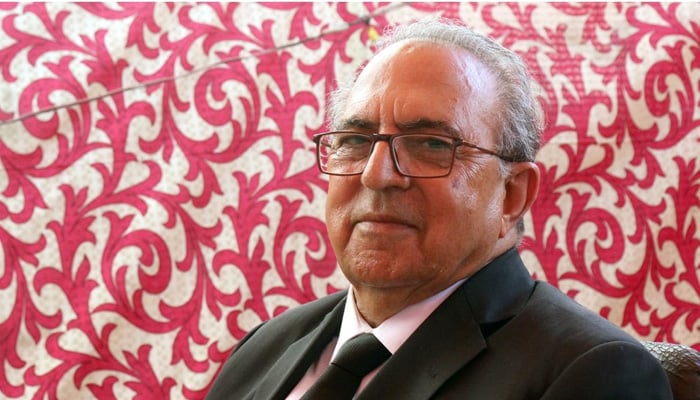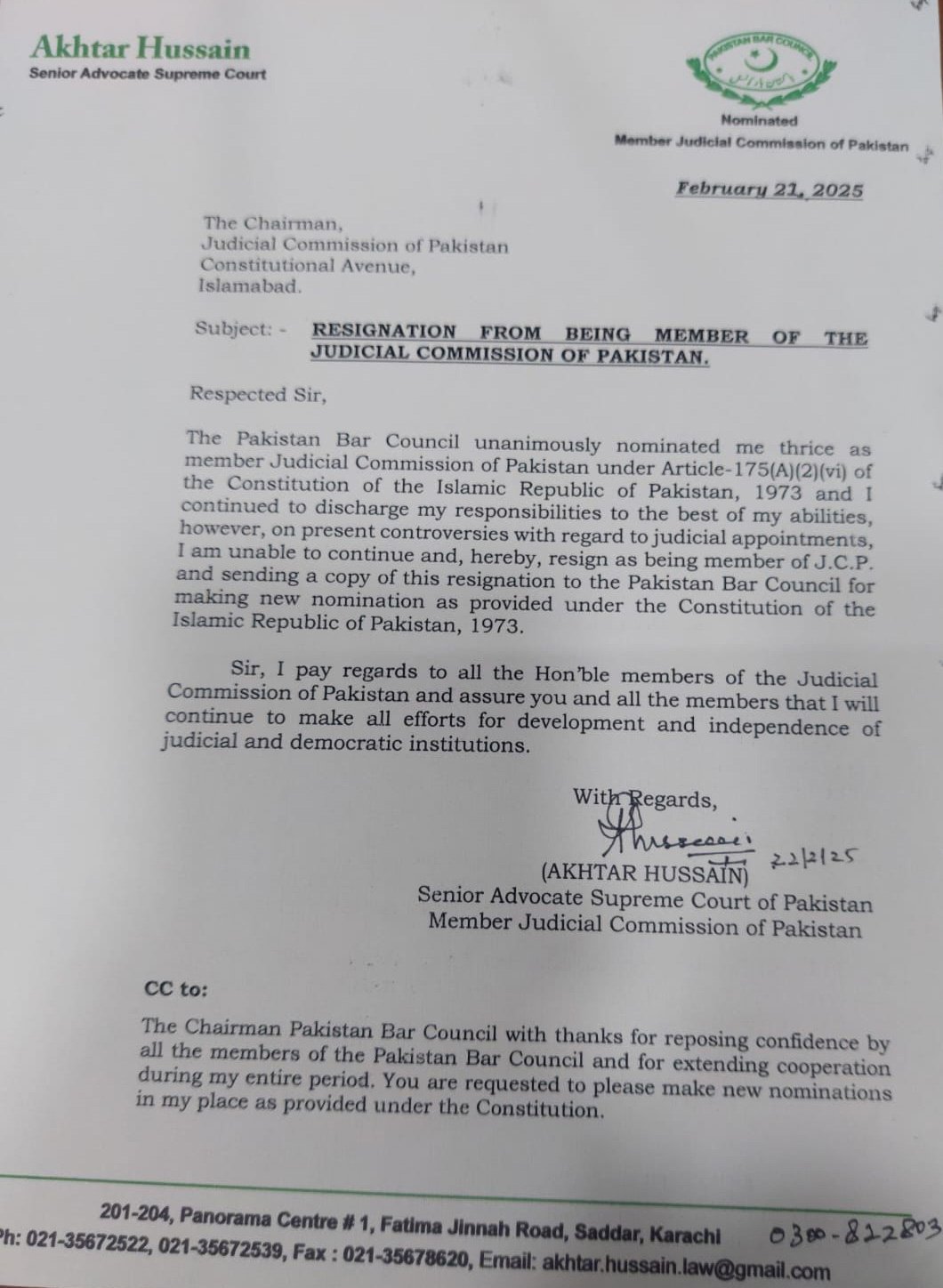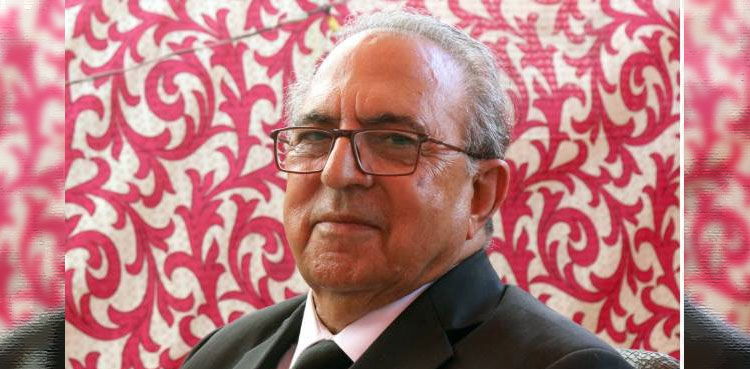
JCP member resigns amid dispute over judges’ appointments
”
ISLAMABAD: Supreme Court’s senior Advocate Akhtar Hussain has stepped down as a member of the Judicial Commission of Pakistan (JCP), citing controversies surrounding the judicial appointment process.
He tendered his resignation to JCP Chairman, Chief Justice of Pakistan (CJP) Yahya Afridi, highlighting his concerns regarding the dispute over judicial appointments.
Hussain, who was nominated thrice by the Pakistan Bar Council (PBC), stated in his resignation letter: “The Pakistan Bar Council unanimously nominated me thrice as a member Judicial Commission of Pakistan (…) and I continued to discharge my responsibilities to the best of my abilities.
…however, on present controversies with regard to judicial appointments, I am unable to continue and, hereby, resign as being member of JCP and sending a copy of this resignation to the Pakistan Bar Council for making new nomination as provided under the Constitution.”
He also expressed gratitude to the commission members and assured them of his continued support for judicial and democratic institutions.
“I pay regards to all the Hon’ble members of the Judicial Commission of Pakistan and assure you and all the members that I will continue to make all efforts for development and independence of judicial and democratic institutions.”
Hussain also thanked the Pakistan Bar Council for its confidence in him and requested that a new nomination be made in his place.
It may be noted that the JCP has recently appointed six new judges to the apex court amid a boycott by Pakistan Tehreek-e-Insaf (PTI) lawmakers and two senior SC judges.
Earlier this month, the judicial commission had sought nominations from all high courts, requesting a list of five senior judges from each.
The Islamabad High Court (IHC) initially forwarded the names of three judges — its top judge Aamer Farooq, Justice Mohsin Akhtar Kayani and Justice Miangul Hassan Aurangzeb — because the other two judges, Justice Tariq Mehmood Jahangiri and Justice Babar Sattar, did not meet the minimum requirement of five years of service.
However, Justice Sarfraz Dogar from the Lahore High Court, along with two judges from the SHC and BHC, was recently transferred to the IHC. Following his transfer, the IHC administration revised its seniority list and designated him as the senior puisne judge. Therefore, his name was also sent to the JCP.
Following this transfer saga, five IHC judges raised the issue of seniority of judges and sent a representation to the IHC chief justice against the new seniority list and also sent a copy to CJP Afridi.
The judges argued that any transferred judge must take a fresh oath under Article 194 of the Constitution, which would place them at the bottom of the IHC’s seniority list. This would render them ineligible for immediate consideration for the position of IHC chief justice.
The JCP, which approves judicial appointments, was reconstituted to include four parliamentarians under the 26th Constitutional Amendment, bringing numerous changes to the judiciary.
The 13-member body is headed by the chief justice of Pakistan and consists of two senators, two MNAs, three senior-most judges of the Supreme Court, most senior judge of the constitutional bench, the federal minister for Law and Justice, the attorney general for Pakistan, an advocate not having experience of less than 15 years of practice in the apex court, nominated by the Pakistan Bar Council for two years.
The JCP is tasked with appointing judges to the Supreme Court, high courts, and Federal Shariat Court and oversee the performance of high court judges and prepare their annual performance evaluations.
Earlier, leader of the opposition in the National Assembly Omar Ayub, who had been nominated among four other lawmakers as the JCP members, also tendered his resignation.
”







